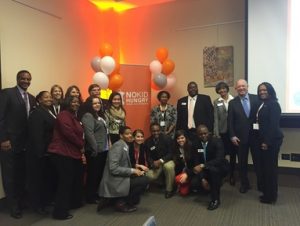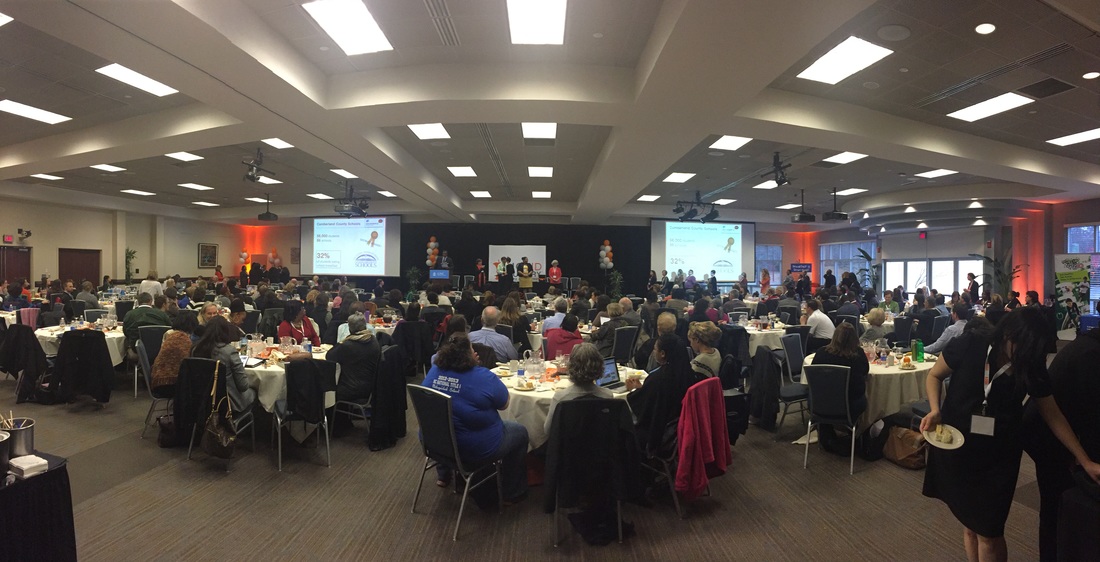Part of Loving Kids is Feeding Them

The NELA Cohort V Fellows recently attended the 2016 No Kid Hungry NC conference at the Friday Center for Continuing Education at the University of North Carolina at Chapel Hill. No Kid Hungry NC is the North Carolina program of the nonprofit Share Our Strength’s national No Kid Hungry campaign. The conference brought together a group of more than 250 teachers, principals, superintendents, public health officials, and child advocates from all parts of the state.
During the conference, Fellows learned about programs and initiatives which are helping to expand access to nutrition programs including school breakfast and summer meals. The goal of No Kid Hungry is to end childhood hunger in the United States by connecting children to effective nutrition programs such as school breakfast and summer meals.
Billy Shore, the CEO of Share our Strength and No Kid Hungry campaign asserted that child hunger is one of the most profound social justice issues today. He said, “Our kids aren’t hungry because we lack food or because we lack of food and nutrition programs in the US. Our children are hungry because we are not connecting the dots and we not collaborating. Practices need to be shared. We need to stop focusing so much on how everyone else has to change and challenge ourselves to think differently about how we do our work.”
A panel from Guilford County Schools discussed how they successfully implemented “Breakfast for ALL KIDS.” Principal Fabby Williams, of Northeast Guilford High School, served on the panel. Mr. Williams came to the U.S. from Liberia and said, “I knew hunger. I lived through it.” He compelled attendees, especially principals, to show courage in taking the first step in doing what is right for children. Mr. Williams discussed the importance of helping staff understand the “why” behind the breakfast in the classroom program and its significance to children and impact on student achievement.
Principal Williams, acknowledging the potential for resistance to change, said “I wasn’t going to ask permission to feed my kids. Part of loving kids is feeding them. I don’t give a damn about test scores. Feed the kids and the score will go up.”
Margaret Walz, the cafeteria manager at Northeast Guilford High School said she believes “a cafeteria can be a part of the heart of the school.”
North Carolina has one of the highest percentages in the US of children under 18 years old who are food insecure on a regular basis: in NC over 1 in 4 children (Data is from 2014 Hunger in America Study, by Feeding America and the Food Hardship in America 2012 Report from the Food Research and Action Center.).



